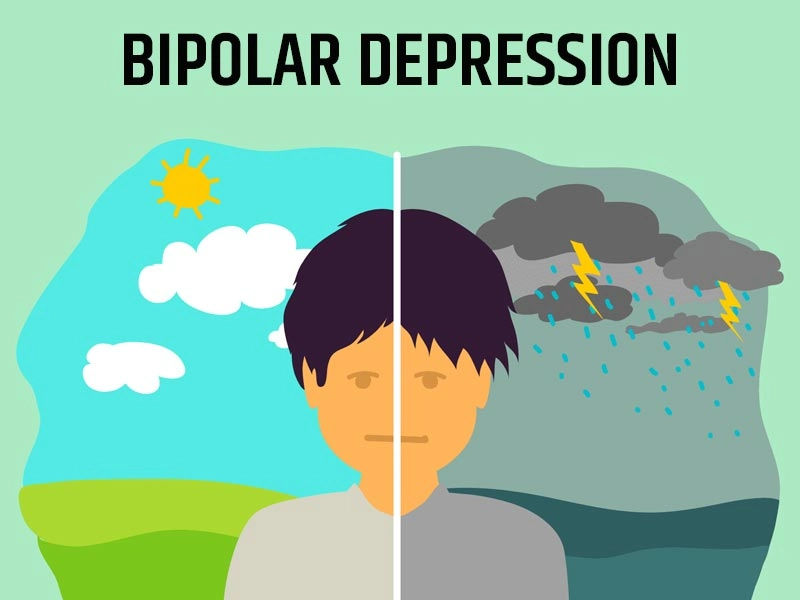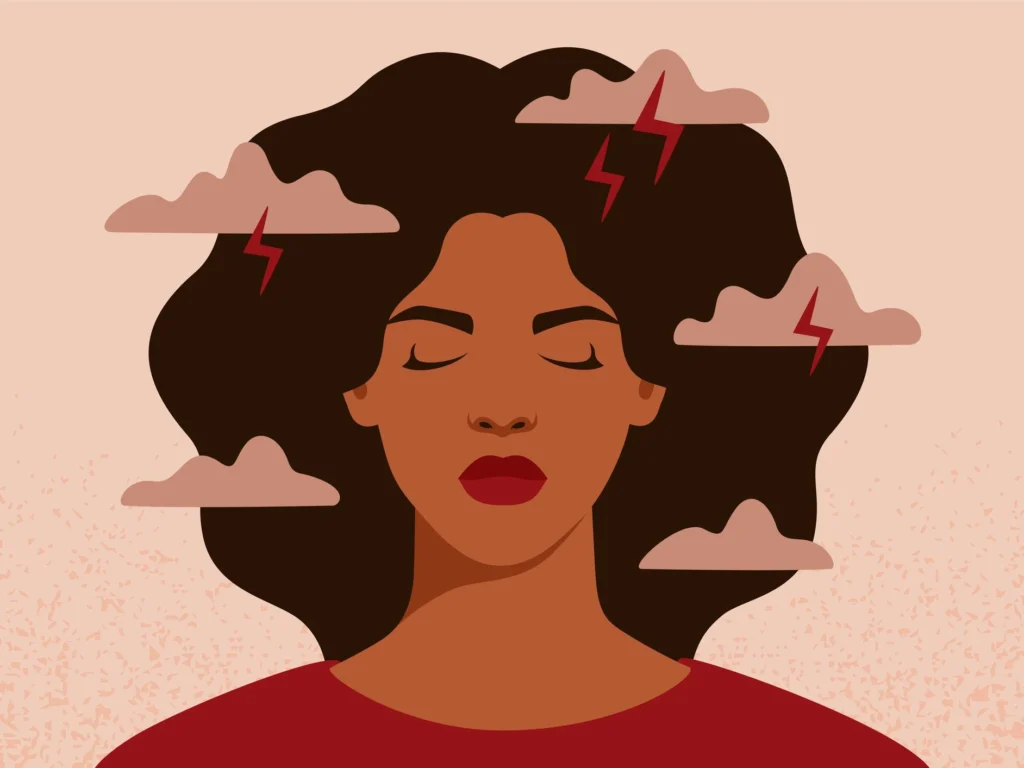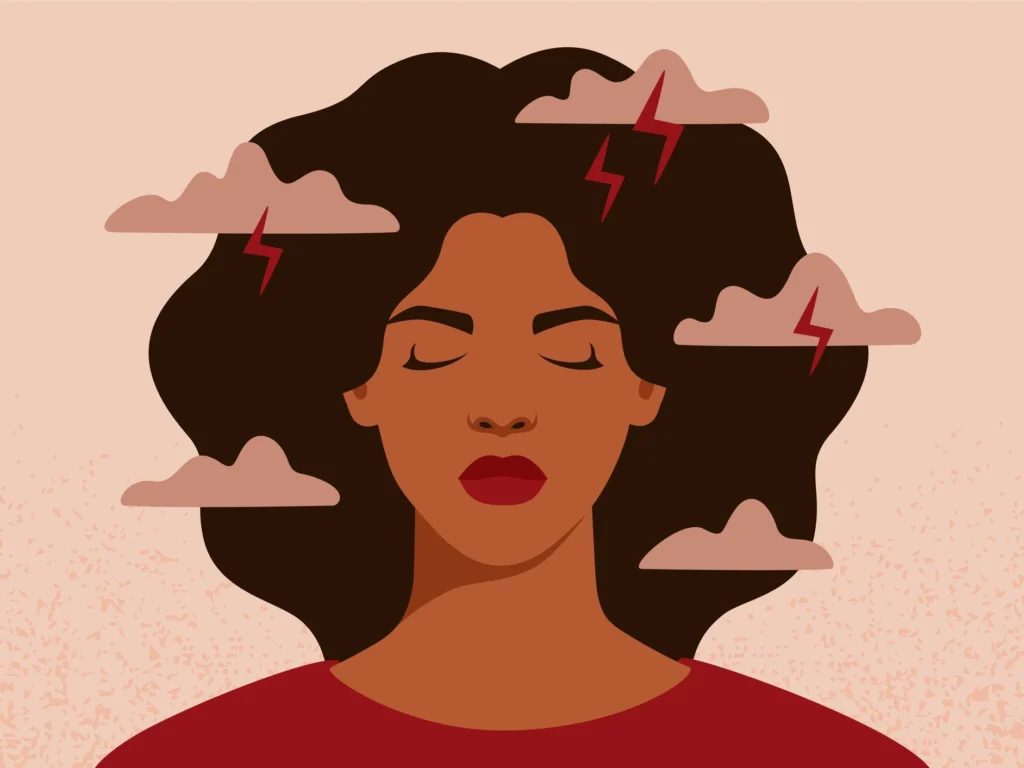Bipolar Anger: A person’s mood is impacted by bipolar disorder, which is a persistent mental illness. Some individuals with the illness have rage that is hard to control.

One of the most typical signs of bipolar illness is irritability. When individuals are unable to use coping mechanisms or are on an ineffective medication regimen, this might become rage. Discover the relationship between anger and bipolar disorder, as well as ways to control it, in this post.
Are People with Bipolar Disorder Prone to Rage?
Mood episodes in bipolar illness can be high, low, or mixed. Irritability is a typical symptom of episodes of elevated or fluctuating mood.
Angry outbursts may result from a lack of coping mechanisms or medicine for irritability in those with bipolar disorder.
Irritability is not a symptom of bipolar disorder for all people; some may only have moderate irritability, which may not cause them to get angry or change their conduct.
The effects of mood episodes vary from individual to individual with bipolar illness, and studies indicate that bipolar symptoms may fall along a spectrum.
In general, a person’s temperament and personality do not determine how they will act when experiencing mania.
Indicators of Bipolar Disorder
A person with bipolar disorder may experience extreme happiness, high energy levels, and self-assurance during times of euphoria or manic episodes.
They may experience racing thoughts, move rapidly between ideas or activities, and become easily annoyed.
Hypomanic episodes are times when symptoms of elevated mood are present, although they are less intense than those seen during manic episodes.
Irritability can be a common symptom in both manic and hypomanic episodes. A person experiencing mania or hypomania may become quickly annoyed by their excessive energy and racing thoughts, which can result in rage.
However, it’s crucial not to presume that a person’s state is the cause of all anger. Sometimes, someone who is angry is not necessarily sick. Every person has the right to express their anger, which is a normal human feeling.
Times of low mood are referred to by doctors as depressive episodes. A person with bipolar disorder may experience intense feelings of sadness, hopelessness, or worthlessness during a depressive episode.
After Being Rageful, How Can One Relax?
There are several methods that individuals might use to calm down while they are upset. These include:
- inhaling deeply from the diaphragm
- visualizing a peaceful moment
- analyzing a circumstance from a logical perspective
- actively listening to someone else
- creating a strategy for action
- using humor to deescalate a situation
- spending time alone
- to divert energy, go for a stroll or run.
How to Deal with Rage in The Long Run

There are several methods for controlling the rage and irritability associated with bipolar disorder, some of which are listed below:
Following a Therapy Regimen
The most effective strategy to alleviate irritability and rage is to treat bipolar disorder effectively.
The best way to control bipolar illness is often to collaborate with a physician to develop a treatment regimen that combines psychotherapy and medication.
Consistency is crucial once both parties agree on a course of therapy. The frequency or intensity of mood episodes can be lessened by adhering to treatments over the long run.
Keeping a Diary to Identify Triggers
Journaling can help someone with bipolar illness identify the causes of their rage and irritability. This strategy can be implemented by a person through:
- keeping track of things that caused mood changes
- figuring out what transpired the previous time that rage resulted from irritability
- working with a therapist to figure out how to handle or avoid these triggers in a proactive manner
The chance of becoming enraged the next time might be decreased by this method.
Making Plans with Friends and Family
The symptoms of irritability in people with bipolar illness can be lessened by developing a support plan with family and friends. An assistance plan may consist of:
- revealing the triggers of wrath and irritation
- listing helpful calming techniques
- Coming to an understanding of how family members and friends may provide the most help
Controlling Stress
The possibility of irritability can be decreased by controlling how the body reacts physically to stress. Activities that lower stress levels include:
- yoga
- mindfulness
- meditating
However, the advantages of these approaches in those with bipolar disorder have not been examined in any research.
Cognitive Behavioral Therapy Is Tried.
Research suggests that cognitive behavioral therapy (CBT) can be helpful in addressing a variety of symptoms of bipolar disorder, such as rage.
Cognitive behavior therapy is a talk therapy that helps individuals link their ideas, emotions, and behavior. It can also aid someone in managing their bipolar illness over the long run.
Changing Medication
A person with bipolar illness should speak with their physician about their persistent problems with rage and irritability. Their course of treatment may need to be modified as a result.
Conclusion
Irritability, not wrath, is a sign of bipolar illness. Although it can be a symptom of hypomania or mania, irritability is less frequent during depressive episodes.
During a manic episode, a person’s behavior is unpredictable, and their typical temperament and personality might change into rage.
Someone with bipolar disorder may find that long-term management techniques help lessen the symptoms of irritability. Strategies can also be used by people to help themselves relax.







